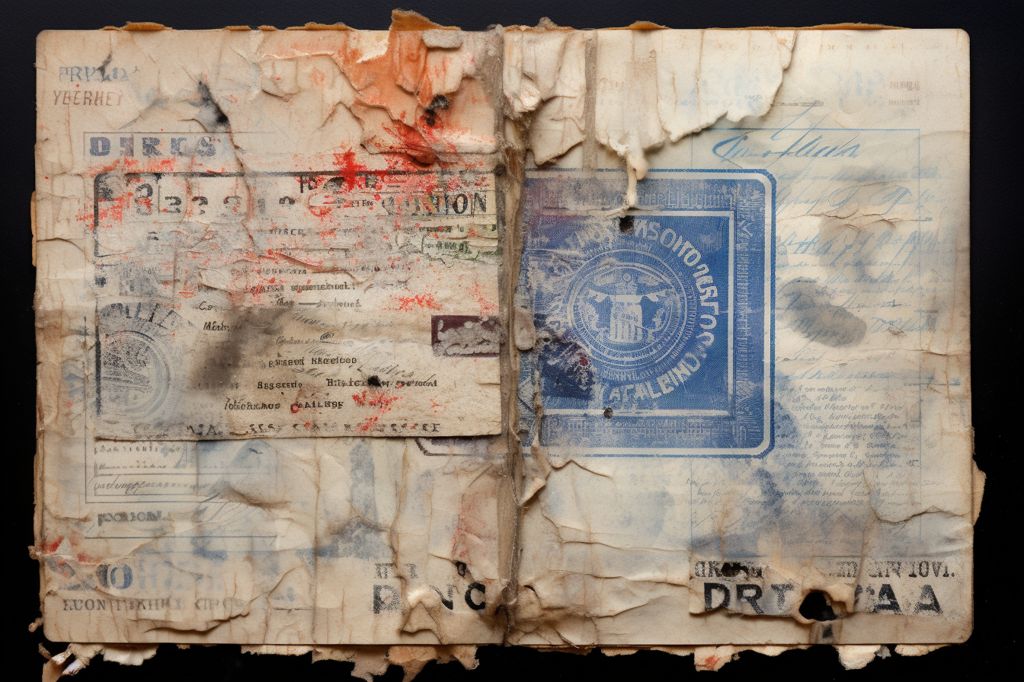South Africa has made significant progress in dismantling a dangerous passport syndicate, and recent sentencing shows the country’s dedication to preserving its integrity. In one operation, Pakistani national Arfan Ahmed was sentenced to eight years in prison for leading a passport syndicate that extended throughout numerous provinces. Twelve corrupt Home Affairs officials implicated in the scheme have also been dismissed and handed over to the Hawks for investigation. Passport fraud has far-reaching and damaging consequences for South Africa’s sovereignty and international reputation, and the government has implemented significant changes to safeguard its systems.
Unraveling a Dangerous Passport Syndicate
In an era where passport fraud threatens national sovereignty, South Africa has made significant progress in dismantling a perilous passport syndicate. The recent sentencing of two South Africans and a Pakistani national for passport-related crimes is a testament to the nation’s judicial system and law enforcement agencies’ steadfast dedication to preserving their country’s integrity.
The operation that led to the arrest of Pakistani national Arfan Ahmed was a collaboration between the Counter Corruption Branch of Home Affairs, the Hawks, and the Police Crime Intelligence. Appearing in Brixton Magistrate Court, Ahmed was sentenced to eight years in prison, putting an end to his reign as the ringleader of a far-reaching passport syndicate. This criminal network extended throughout numerous provinces, including Gauteng, Limpopo, KwaZulu-Natal, Eastern Cape, Western Cape, and Mpumalanga. Ahmed’s extensive web of connections included corrupt Home Affairs officials who were complicit in fraudulently obtaining South African passports for Pakistani nationals without legal entitlement.
With Ahmed now imprisoned, 12 corrupt Home Affairs officials implicated in his scheme have been dismissed and handed over to the Hawks for criminal investigation. The swift action taken by law enforcement agencies highlights their determination to eliminate corruption and defend South Africa’s sovereignty.
Punishing the Culprits and Protecting the Nation
In another significant development, the Durban Magistrate Court handed lengthy sentences to Anda Ngozi and Nomathandazo Mboyane, corrupt officials working at the Home Affairs office in Queenstown, Eastern Cape. The pair had fraudulently processed 52 passports for foreign nationals, mostly from the Democratic Republic of Congo (DRC), who were not legally entitled to them. Under cover of darkness, they traveled long distances to Home Affairs offices in Commercial Road and Prospecton in Durban, KwaZulu-Natal, to carry out their criminal acts.
Ngozi and Mboyane were sentenced to 26 and 24 years in prison, respectively. Home Affairs Minister Dr. Aaron Motsoaledi expressed satisfaction with the lengthy sentences handed down by the courts, stating that these decisions demonstrate the judiciary’s commitment to protecting the integrity of South Africa’s systems.
As the Hawks continue to investigate these cases, Minister Motsoaledi remains hopeful that more individuals involved will be held accountable for their actions. He emphasized the government’s unwavering resolve to ensure that officials participating in corrupt practices face the full force of the law. The minister’s message was unequivocal: those involved in corruption will be pursued relentlessly.
Addressing the Consequences and Safeguarding South Africa
Passport fraud has far-reaching and damaging consequences for South Africa’s sovereignty and international reputation. Individuals who obtain South African passports without proper qualifications not only undermine the nation’s documents but also pose a significant risk to the country’s global image. These individuals may engage in activities that damage South Africa’s standing on the world stage, while legitimate asylum seekers and refugees using these passports for travel may have their claims called into question.
The ripple effects of this crime extend beyond the immediate perpetrators and enablers, impacting the lives of ordinary South Africans. Unwitting citizens who have their identities stolen for these schemes face various consequences in their dealings with state institutions, banks, and industry associations. Their identities’ integrity becomes compromised, leading to numerous problems in their personal lives.
In response to the exploitation of the passport application system, Home Affairs has implemented significant changes to the processes for obtaining passports in the country. This proactive approach showcases the government’s commitment to safeguarding South Africa’s sovereignty and reputation.
The recent sentences in Durban and Johannesburg are a testament to the resilience of South African judiciary and law enforcement agencies in their fight against corruption and passport fraud. These victories signify not only a triumph of justice but also a demonstration of unwavering commitment to upholding the nation’s integrity. The collaborative efforts between various agencies serve as both a warning to those attempting to undermine the country’s systems and a beacon of hope for the future of South Africa.
1. What is the passport syndicate that was dismantled in South Africa?
The passport syndicate was a criminal network led by Pakistani national Arfan Ahmed that extended throughout numerous provinces in South Africa. The syndicate involved corrupt Home Affairs officials who were complicit in fraudulently obtaining South African passports for Pakistani nationals without legal entitlement.
2. Who was sentenced to eight years in prison for leading the passport syndicate?
Arfan Ahmed, the leader of the passport syndicate, was sentenced to eight years in prison.
3. How many corrupt Home Affairs officials were implicated in the passport syndicate?
Twelve corrupt Home Affairs officials were implicated in the passport syndicate.
4. What was the punishment for Anda Ngozi and Nomathandazo Mboyane, corrupt officials who processed passports for foreign nationals not legally entitled to them?
Anda Ngozi and Nomathandazo Mboyane were sentenced to 26 and 24 years in prison, respectively.
5. What is the government’s commitment to officials participating in corrupt practices?
The government has an unwavering resolve to ensure that officials participating in corrupt practices face the full force of the law.
6. What are the consequences of passport fraud for South Africa’s sovereignty and international reputation?
Passport fraud undermines the integrity of South Africa’s documents and poses a significant risk to the country’s global image. It may damage South Africa’s standing on the world stage, and legitimate asylum seekers and refugees using these passports for travel may have their claims called into question.
7. What impact does passport fraud have on the lives of ordinary South Africans?
Unwitting citizens who have their identities stolen for these schemes face various consequences in their dealings with state institutions, banks, and industry associations. Their identities’ integrity becomes compromised, leading to numerous problems in their personal lives.
8. What changes has Home Affairs implemented in response to the exploitation of the passport application system?
Home Affairs has implemented significant changes to the processes for obtaining passports in the country to safeguard South Africa’s sovereignty and reputation.








